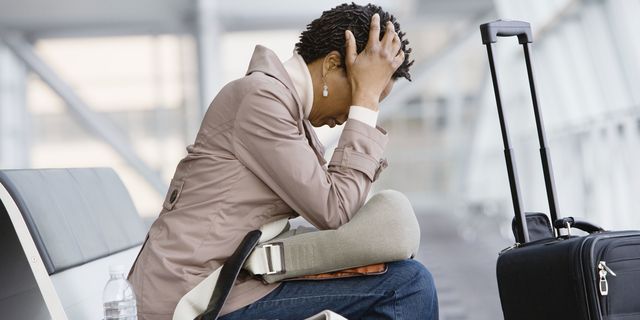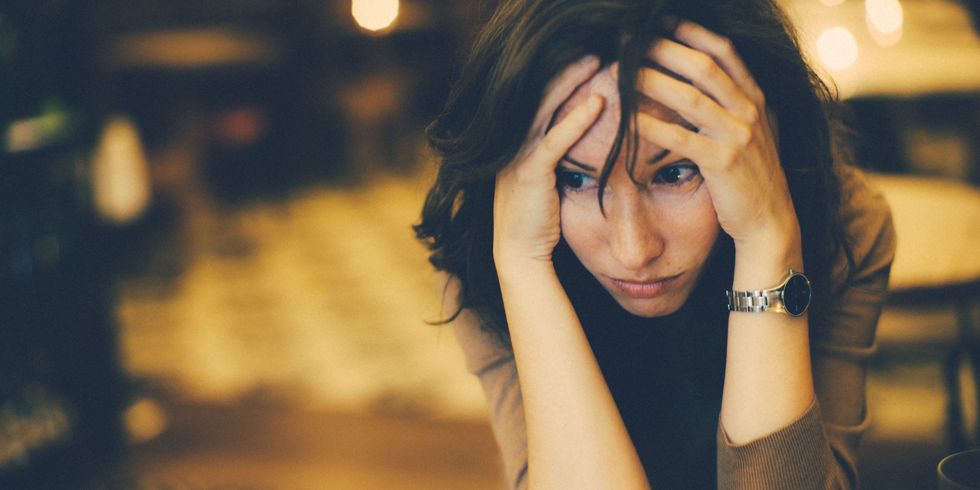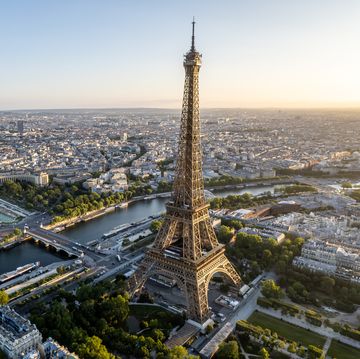There was once a time when it was possible to step onto a plane, dance at a concert or attend a sporting event without the possibility of a terror attack even crossing our minds. Sadly, though, in 2017, such worries have become inevitable. At a time when the UK has raised its terror threat level to 'critical' for the first time in nearly a decade following the abhorrent attack in Manchester, it's no surprise that terrorism has become a pretty much permanent fixture in most people's thoughts.
In reality, the likelihood of being caught up in a terrorist attack remains remote. Far more Londoners have been killed in cycling incidents than in terror attacks over the last 15 years. Yet, as the threat from ISIS and other radical groups increases, it seems more a question of when, rather than if, another attack will take place in the UK - and that is a huge burden to cope with.
Britain is currently experiencing an 'anxiety epidemic', with up to a third of the population suffering from an anxiety disorder or panic attack at some point in the lives. Indeed, research has revealed that teenagers are 92% more likely to suffer sleep disturbances while worrying about personal accidents or terrorist attacks compared with nuclear attacks or environment worries, while past studies have proven that increased risk of exposure to terrorism results in higher levels of mental health problems.
And it's not just our own mental health we need to worry about. With the Manchester attack affecting so many children, Dr. Andrea Danese – child psychiatrist at King's College London's Institute of Psychiatry, Psychology and Neuroscience – says we need to be aware of how such awful events can impact our children. She said:
"The horrific attack in Manchester has brought up several questions related to its potential mental health consequences, particularly in the many young people involved."
She added:
"Although PTSD is a key concern after trauma, several other psychopathological conditions are common (or even more common given the higher base rates in the population), including depression, alcohol/substance abuse, conduct disorder, and anxiety disorders. These other conditions can appear together with PTSD (comorbidity) or on their own."
In the face of such horrific acts, it's vital that we do not give into fear, but remain strong, smart and resilient. So how can we manage our anxiety in an age of terror? We came up with some top tips on how to stay on top of so-called 'terror phobia' in our everyday lives, with the help of Dr Monica Cain, counselling psychologist at Nightingale Hospital.
1. Take a news break
There's nothing wrong with being well informed, but if 2016 has taught us anything, it's that there most certainly is such a thing as too much news. Endlessly watching, reading or scrolling through daily news updates is enough to put anyone on edge. Throw a terrorist incident into the mix, and things become ten times worse.
"In the immediate aftermath of an attack and the subsequent news reporting (the drama), the fear of a re-occurrence is high – the perceived risk of another attack is high. The heightened drama around the reporting also has an influence. The news does not tend to report on the risks of a car accident, even though the risk is much higher."
The tendency of some news organisations to prey on the fears of the general public has a great impact on our mental state, with studies showing that people who consume a high amount of news tend to report increased levels of anxiety. If this sounds familiar, then it's time to stop spoon-feeding fear into your brain. Turn off the TV, chuck the newspaper and close your apps.
2. Maintain a routine
Whilst the threat of a terror attack remains high, many people feel pressure to engage in avoidance behaviours, such as steering clear of crowded spaces, evading public transport and cancelling plans for social events and holidays. However, you should try and carry on living normally at such times, as this is the best way to decrease anxiety levels.
"In the wake of an attack, do what you have always done. Travel, socialise and go to the supermarket. Try to gradually go about daily life as much as possible even if it makes you more anxious in the beginning."
Remember, the creation of fear is the aim of such attacks, so don't give terrorists what they want by letting them impact on the way you live your life. If you do work yourself up into a panic (on the tube or in a lift, for example) then focus on something non-threatening and visible, such as time passing on your watch or what other people around you are wearing. Remind yourself that your frightening thoughts are just that: thoughts.
3. Accept uncertainty
If you find yourself paralysed by the possibility of a terror attack, it might be time for a reality check. No matter how diligently you prepare for a disaster, the possibility of getting caught up in one is always going to be there. Just like there's always a chance that you might win the lottery, get struck by lightning or win a gold medal at the next Olympic games.
"We tend to over-estimate risk when risk appears more uncertain, but we actually live fairly successfully with uncertainly every day. Normal uncertainties include commuting to work, crossing the road or eating in a restaurant. Terror attacks are rare and unknown uncertainties which is why the risk appears increased."
As the famed mathematician John Allen Paulos said, "Uncertainty is the only certainty there is, and knowing how to live with insecurity is the only security." Sound like some pretty wise words to us.
The immediate aftermath
"Tragic events can affect people in a variety of psychological ways, even if they were not at the scene, or if they did not have family there," says Doctify psychiatrist Dr Brock Chisholm. Many people tend to try hard not to think about what happened in an attempt to make themselves feel better, but this only prolongs the difficulties. Dr Chisholm adds:
"After a traumatic event people want to help. In their desire to help, they could make things worse. Single one off sessions, sometimes called debriefing, are not advised just after the trauma. It's normally better to watch and wait for a month or so before seeking professional help"
It's worth noting that self-medicating with sleeping pills or benzodiazepines (Valium) just after a traumatic event makes it more likely that Post Traumatic Stress Disorder (PTSD) symptoms develop, as this interrupts the brain's ability to process what happened in a normal way.
"If you are a friend or family of the person who has been traumatised by an event, let them know that you are there to listen, without judgment and with compassion. Don't try to force people to talk, but don't advise them not to talk about it, or to try to forget it either. Respect their wishes but don't collude in trying to avoid thinking about the trauma. That only makes things worse."
If you or someone you know is still suffering from overwhelming emotions, painful memories, lack of sleep or nightmares a month after the traumatic event, seeking professional help is a good idea.















